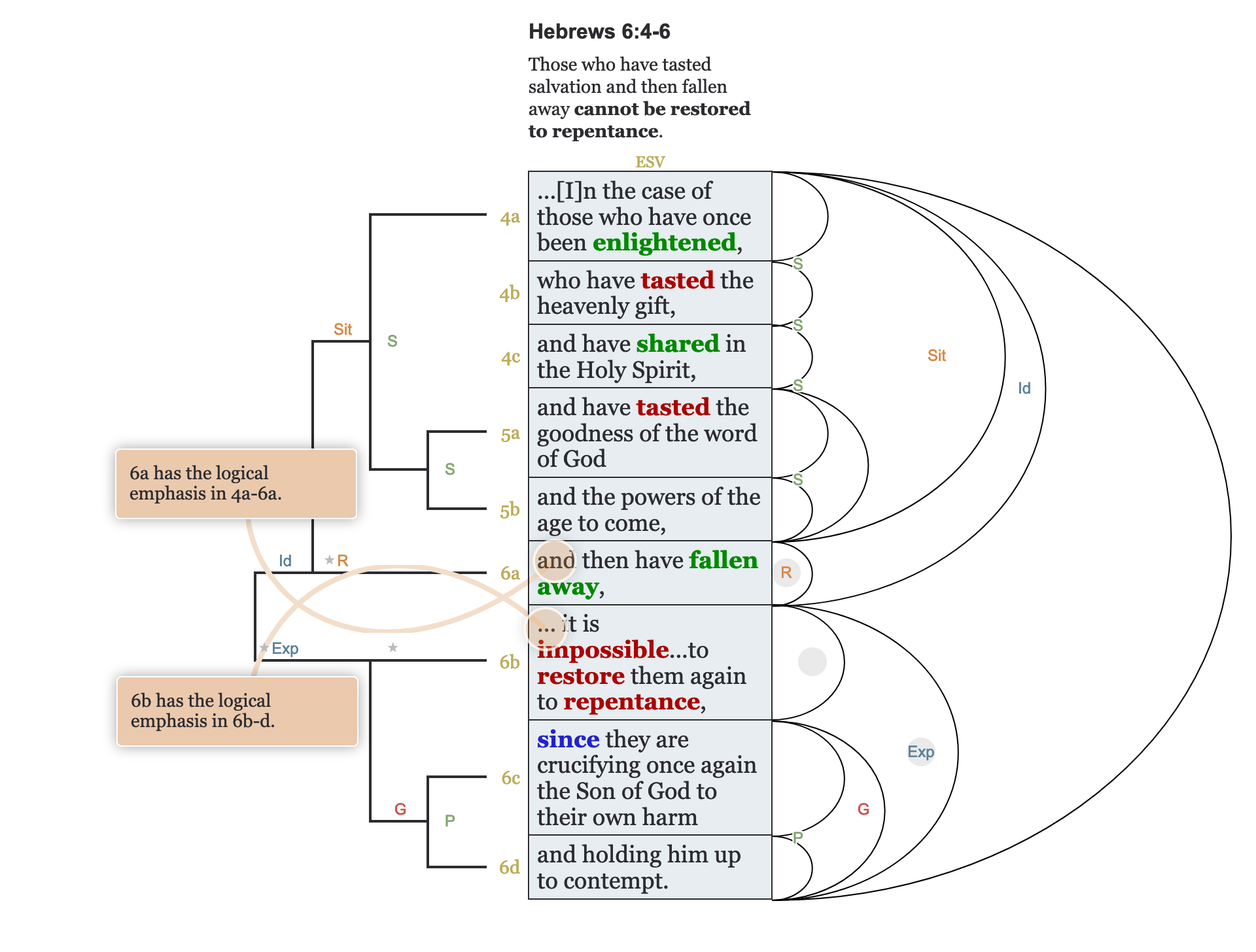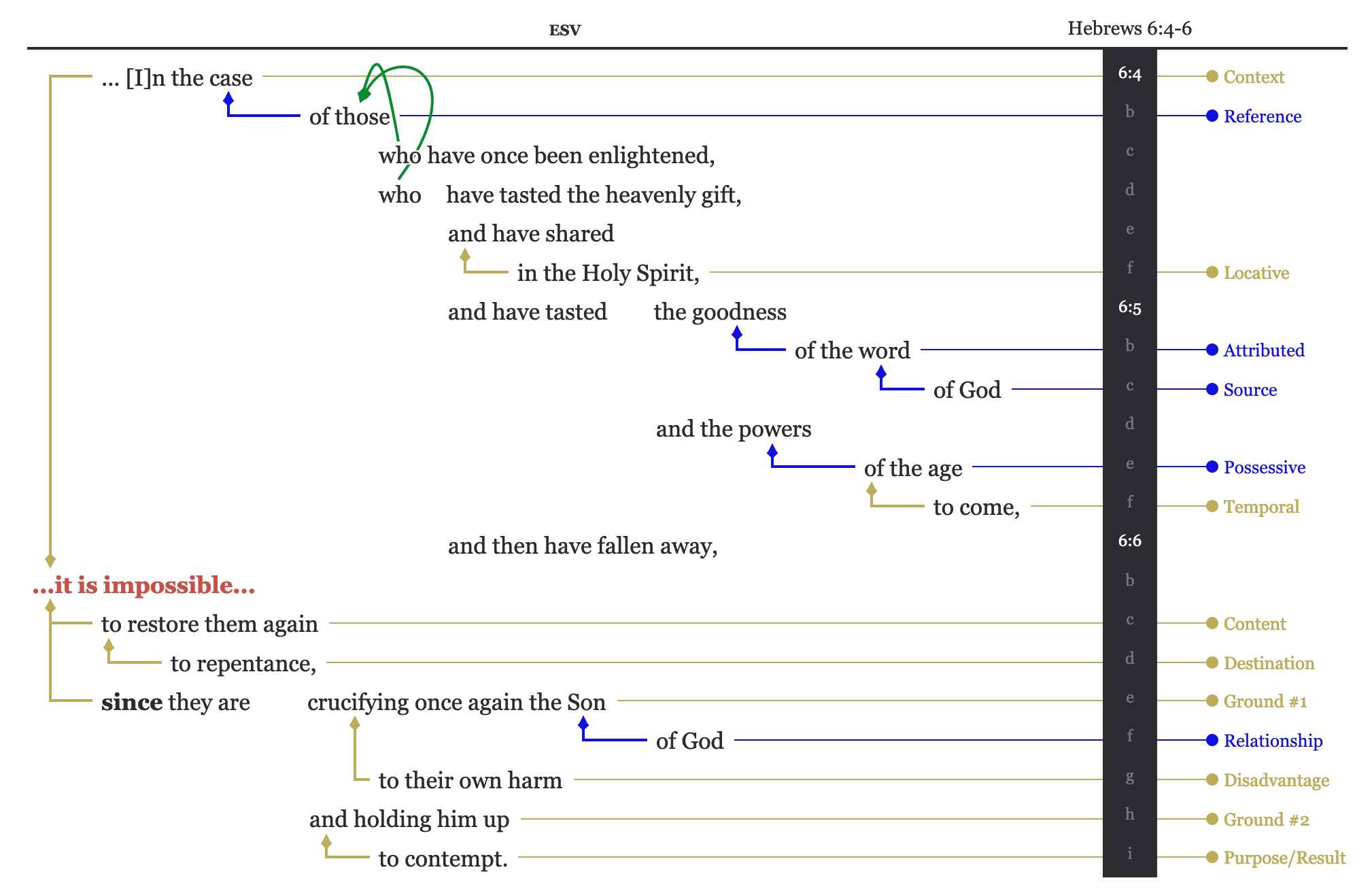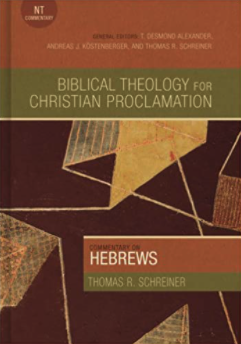Lesson 5: Other Valuable Resources
Hebrews 6:4-6: Resource Demonstration
Before I talk in detail about several ways that commentaries and the resources described in this lesson helped me understand Hebrews 6:4–6 better, I’ll give a brief summary of my work in the first step of Bible study.
The historical context of Hebrews 6:4–6
First, let me summarize what I found about the historical context of Hebrews in one paragraph:
An unknown man wrote Hebrews in order to encourage Jewish believers to cling to Christ in persecution (Heb 10:23, 32–36; 12:1–4), not to go back to Judaism (6:4–6; 10:25–31). To do this, he strongly exhorted them and presented the glorious, supreme person of Christ to them.
Arc and phrase
Now we will explore the textual context of Hebrews 6:4–6. I did the first step of Bible study, which I explained back in Lesson 2, so let’s read the text first. Then I’ll show you my arc and phrase, and lastly I’ll quickly condense what I found into one short paragraph.
For it is impossible, in the case of those who have once been enlightened, who have tasted the heavenly gift, and have shared in the Holy Spirit, and have tasted the goodness of the word of God and the powers of the age to come, 6 and then have fallen away, to restore them again to repentance, since they are crucifying once again the Son of God to their own harm and holding him up to contempt. —Hebrews 6:4-6


Both my arc and phrase show that the logical and grammatical emphasis is in 6b: “it is impossible … to restore them again to repentance.” So the impossibility of repentance for a certain kind of person is the focus.
Now let’s see how extrabiblical resources helped me refine and expand my understanding of this text.
The Microscope Question
Summary of our discoveries about three important words
“Tasted”
To “taste” is to experience. So the people under consideration in verses 4–6 had experienced salvation, become recipients of God’s gracious promises, and experienced miracles demonstrating that Jesus’ kingdom had arrived. They were genuine believers.
“Fallen away”
To “fall away” is to commit covenant unfaithfulness, as Israel did. This is apostasy.
“Since”
The logical force of this word is that genuine believers who commit apostasy have no hope of going to Heaven because they have rejected Christ.
Summary of my answer to the microscope question
If believers reject the saving work of Jesus and renounce him as Savior and Lord, there is absolutely no rescue for their souls.
Recommended Resources
The Telescope Question
Summary of my answer to the telescope question
The emphasis of the rest of Scripture impacts this passage in two ways:
- Confirmation: Falling away is apostasy, and the recipients of the letter were genuine believers.
- Sharpening: God infallibly uses warnings like this to empower genuine believers to hold on to Christ and not fall away.
The emphasis of this passage impacts the rest of Scripture also in two ways:
- By making unbelief look truly ugly and horrendous
- By correcting the idea that genuine believers can enter Heaven effortlessly









